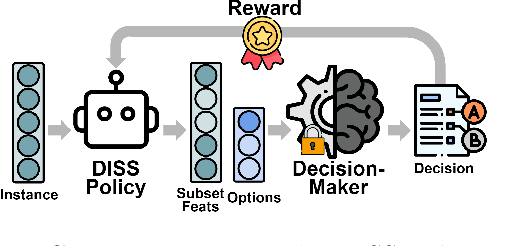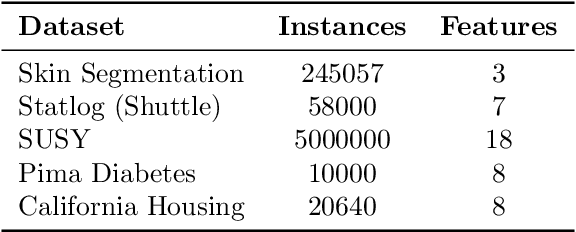Shreyas Bhat Brahmavar
Towards Universal Neural Inference
Aug 12, 2025Abstract:Real-world data often appears in diverse, disjoint forms -- with varying schemas, inconsistent semantics, and no fixed feature ordering -- making it challenging to build general-purpose models that can leverage information across datasets. We introduce ASPIRE, Arbitrary Set-based Permutation-Invariant Reasoning Engine, a Universal Neural Inference model for semantic reasoning and prediction over heterogeneous structured data. ASPIRE combines a permutation-invariant, set-based Transformer with a semantic grounding module that incorporates natural language descriptions, dataset metadata, and in-context examples to learn cross-dataset feature dependencies. This architecture allows ASPIRE to ingest arbitrary sets of feature--value pairs and support examples, align semantics across disjoint tables, and make predictions for any specified target. Once trained, ASPIRE generalizes to new inference tasks without additional tuning. In addition to delivering strong results across diverse benchmarks, ASPIRE naturally supports cost-aware active feature acquisition in an open-world setting, selecting informative features under test-time budget constraints for an arbitrary unseen dataset. These capabilities position ASPIRE as a step toward truly universal, semantics-aware inference over structured data.
Dynamic Information Sub-Selection for Decision Support
Oct 30, 2024



Abstract:We introduce Dynamic Information Sub-Selection (DISS), a novel framework of AI assistance designed to enhance the performance of black-box decision-makers by tailoring their information processing on a per-instance basis. Blackbox decision-makers (e.g., humans or real-time systems) often face challenges in processing all possible information at hand (e.g., due to cognitive biases or resource constraints), which can degrade decision efficacy. DISS addresses these challenges through policies that dynamically select the most effective features and options to forward to the black-box decision-maker for prediction. We develop a scalable frequentist data acquisition strategy and a decision-maker mimicking technique for enhanced budget efficiency. We explore several impactful applications of DISS, including biased decision-maker support, expert assignment optimization, large language model decision support, and interpretability. Empirical validation of our proposed DISS methodology shows superior performance to state-of-the-art methods across various applications.
IKD+: Reliable Low Complexity Deep Models For Retinopathy Classification
Mar 04, 2023



Abstract:Deep neural network (DNN) models for retinopathy have estimated predictive accuracies in the mid-to-high 90%. However, the following aspects remain unaddressed: State-of-the-art models are complex and require substantial computational infrastructure to train and deploy; The reliability of predictions can vary widely. In this paper, we focus on these aspects and propose a form of iterative knowledge distillation(IKD), called IKD+ that incorporates a tradeoff between size, accuracy and reliability. We investigate the functioning of IKD+ using two widely used techniques for estimating model calibration (Platt-scaling and temperature-scaling), using the best-performing model available, which is an ensemble of EfficientNets with approximately 100M parameters. We demonstrate that IKD+ equipped with temperature-scaling results in models that show up to approximately 500-fold decreases in the number of parameters than the original ensemble without a significant loss in accuracy. In addition, calibration scores (reliability) for the IKD+ models are as good as or better than the base mode
 Add to Chrome
Add to Chrome Add to Firefox
Add to Firefox Add to Edge
Add to Edge